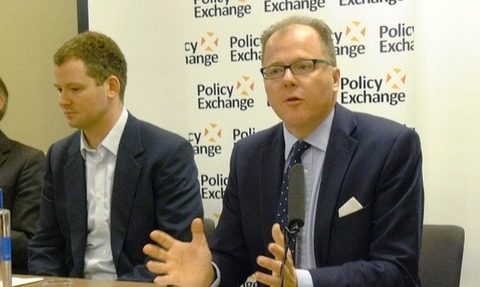Editor's comment: New lease of life
24 Jul 2014

As part of the Prime Minister’s reshuffle, David Cameron appointed the first ever Life Sciences minister. But what will George Freeman actually do to help boost the sector?
In March the Department for Business, Innovation & Skills (BIS), alongside its counterpart the Department of Health (DH), launched what it described as a “bigger, better office for life sciences”.
To help effect this change, both offices joined forces to create an expanded and wider reaching life sciences department for the UK.
“Freeman’s message is one of championing life sciences
As a means of boosting the life sciences office further, BIS and DH appointed Nicole Mather, director in Deloitte’s Healthcare and Life Sciences practice, to the post of director within the office.
However, as part of the Prime Minister’s cabinet reshuffle last week, the Science and Universities minister David Willetts was replaced by Greg Clark, who will take charge of the office in addition to his current brief as cities minister - effectively splitting his time between two roles.
It was perhaps for this reason, therefore, why the Prime Minister decided to boost the science offices with the appointment of George Freeman as the first ever UK Life Sciences minister.
Whatever Cameron’s reasoning, the appointment can only help to serve the life sciences sector.
Little more than a week down the line and the new life sciences minister has already made some headway in his support of the life sciences sector.
Yesterday, Freeman was on duty to officially open a new building in Norwich that will enable businesses to interact with some of the best scientific and research minds in the food, health, energy and environment industries.
The Centrum building will form part of Norwich Research Park’s centre for innovation and enterprise as a leading hub of life sciences in the region.
“The government’s continued investment in Norwich Research Park is helping to create and support a first-class innovation hub in the east of England based on world-leading bioscience,” said Freeman at the opening of the £11.5 million building.
“The science community will now be able to share access to this unique and specialist facility that will help to drive growth, foster innovation and support the Norwich, Norfolk and East Anglia life science cluster to create the jobs and businesses of tomorrow,” he said.
During his visit, the minister also opened the Norwich Research Park Virtual Technology Centre where pooled scientific technology platforms from research organisations on the Park will enable ease of access for both academics and businesses.
Freeman’s message is one of championing life sciences from the Norwich Research Park all the way down to the Cambridge cluster, and he seems to have made a pretty good start.
Hopefully, as life sciences continues to gain pace in the UK, the government will continue to fund research projects, skills initiatives and great ideas - which will lead us to produce even better healthcare technologies, medical innovations and life-changing treatments for people around the globe.

